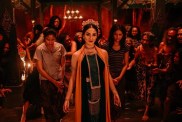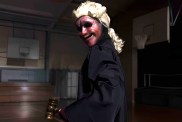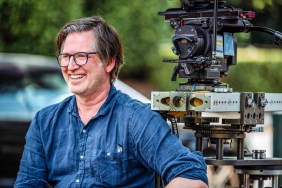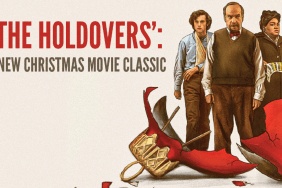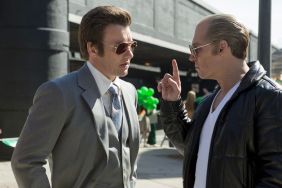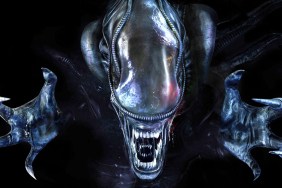
Interview with Black Mass director Scott Cooper
For decades, James “Whitey” Bulger terrorized South Boston with a crime wave that included drugs, extortion and murder, and while most people feared Bulger, he also became a legend among the poor locals for the attention and notoriety he brought to the area.
While Bulger’s criminal career and private life have been well documented in many books, the documentary Whitey, as well as Bulger-inspiring Jack Nicholson’s character in the Oscar-winning The Departed, the first real attempt to dramatize Bulger’s legacy comes in the form of Black Mass, starring Johnny Depp as the notorious criminal.
The film follows Bulger as he’s contacted by his childhood friend John Connolly (Joel Edgerton), now an FBI agent who convinces “Whitey” to provide them with information that will conveniently put all of his competition behind bars while Bulger continues his crime wave unhindered by law enforcement.
The riveting crime drama is directed by Scott Cooper, who previously directed Jeff Bridges to an Oscar win for his performance in Crazy Heart, followed by 2013’s crime drama Out of the Furnace. The nature of Bulger’s story required Cooper to assemble an enormous ensemble cast that includes Benedict Cumberbatch, Julianne Nicholson, Dakota Johnson, Kevin Bacon, Corey Stoll, Peter Sarsgaard, Adam Scott, David Harbour and Juno Temple.
ComingSoon.net spoke with Cooper in Toronto while he was there with the film’s premiere at the Toronto International Film Festival. (You can also check out our review of Cooper’s film here.)

Scott Cooper: Oh yeah. It was an epic challenge. I mean, I made this film with great trepidation. Many of my favorite films and many of the best American films ever made are gangster or crime genre. Of course, Coppola’s work and Scorsese and Sidney Lumet, and if you look at world cinema, which I love, you’ve got “Gomorrah” or that little nasty crime thriller I love called “Sexy Beast” or even “A Prophet.” The bar is very high. You can’t ever really meet that, and nor should you try because those movies are masterpieces. So I just thought, “Well, how can I tell this story without….?” A couple things. One, I didn’t want to in any way tell a story about criminals who just happened to be gangsters or criminals who just happened to be human. I wanted to tell a film about humans who happened to be criminals, and I think there’s a difference. I didn’t want to glorify or romanticize or mythologize “Whitey” Bulger in any way. I wanted to tell it in a very unflinching manner, always keeping in mind that there were victims and their families, and it was really my approach. I never really set out to try to separate this movie from those other films I just mentioned to you. It’s just an extremely high bar and one that would be a fool’s errand to try to make. I didn’t even think I was making a gangster picture or a crime movie, I was just making a straightforward drama.
CS: I know John Lesher had been developing this for a while, and that a couple of writers had worked on it, so what kind of shape was it in when you got involved?
Cooper: Well, I mean, look. When I came on to it, the trial was ongoing. There was a lot that was unearthed. I came and worked closely with the authors of the book “Black Mass,” who were the Boston Globe reporters that worked closely with the FBI and worked closely with Fred Wyshak and that was the man who arrested Whitey. Then I looked at Dick Lehr and Gerard’s other book called “Whitey,” and I took what Mark (Mallouk) and Jez (Butterworth) had put down on the page along with some other writers, and then you go through that process and you develop it further and you make it your own.
CS: Had John already talked Johnny Depp into playing Whitey, or was that also something which came about after you came onboard?
Cooper: Well, look, I think Johnny had always wanted to play Whitey. He likes to play real life characters, and he played Dillinger and he’s played several. He and I first met after he saw “Crazy Heart” and reached out to me and we got together and broke some bread and definitely wanted to work with one another. Then he saw “Out of the Furnace,” and he appreciated that. We discussed being a part of this film, but I said to Johnny, “You know, you always get to play very likeable characters, characters that are beloved. I need to see a completely different side of you, different from anything you ever played. We need a real sense of danger.” And we got it because if you’ve ever interviewed Johnny, you know he’s sweet, he’s soulful and kind and gentle and what you see on screen is anything but.
CS: It is literally night and day to anything else we’ve seen him in. We’ve seen him play more comical and sympathetic, even when he was in “Blow” or “Public Enemies” which would be the closest to something like this.
Cooper: I hope you liked the portrayal.
CS: It was stunning. My jaw was on the floor, especially in those later scenes with Julianne. I did not know what was going to happen to her.
Cooper: That’s one of the people who lived in Boston who worked on the film, crew members. It was very chilling when he first came to set, and Whitey Bulger’s longtime attorney came by and he watched us film for a couple of hours and I once saw him shaking his head, and I called cut and I said, “Were we just not getting it right?” He said, “Scott, it’s incredible. It’s as though a ghost has appeared before us. Johnny looks just like him, has the same eyes, the way he moves and talks, it’s uncanny.” At that point, I knew we had something.

CS: Obviously, there are people who were around at the time and are still alive. John Connolly’s wife is probably around somewhere. Did you get a chance to meet with any of them or have any of them around?
Cooper: No, I tried to meet with Whitey, but he had no interest in speaking with me, and then what you do is you meet with people who have been around these gentlemen, but the truth is often elusive. They all have different things to say about the events that took place. That’s why I really wanted to ground the screenplay and ground the world by really talking to the men who were on the streets and covered these things. The result is what you saw, but yes, there were many people who were around and people who knew him. I tell you, his reach is far and wide.
CS: Were they fairly open to you filming this in Boston and especially in South Boston where these events took place?
Cooper: Oh, I shot in every corner of that city and they largely welcomed us with open arms. I am screening the film there for the first time on Tuesday night, and I’m somewhat anxious about that, because there are many people who have been touched by Whitey Bulger and these emotional scars have yet to heal, so I hope they feel that we haven’t in any way romanticized it.
CS: I would think the instinct of most filmmakers, at least just when you’re talking about a Hollywood movie and studio, they would try to make him more human so the audience will at least be along for the ride. You had a moment when his son was in a coma where you could have done that, and you didn’t.
Cooper: Look, the tender moments with his son and with Dakota’s character and with his mom and the other ladies of South Boston, there are many people who thought Whitey was very good to them. They told me that themselves. He was almost as a Robin Hood figure, but I think there’s very few people.
CS: I think if you make a movie like this, you don’t want to glorify crime, but he was larger than life and as like you say, there must have been people in that area, those who knew or didn’t know him, that looked up to him.
Cooper: Yeah. I came across many people that–because I have a lot of non-actors in the film–and a couple of them had worked for Whitey, seeing really all different sides. I wanted to put forth the multifaceted portrait of this man, but again, you’re making a narrative feature. It’s not in service as a documentary. I don’t think people come to movies for facts. I think they come for psychological truth and humanity and emotion.

CS: I wanted to talk about Joel, also, because I think that’s really the counterpart to White, and one of the most important parts of the story because of the fact that Whitey acting as an informant without anyone knowing and considering how he treated people he thought were rats themselves.
Cooper: I can’t say enough about Joel Edgerton. I mean, he’s a remarkable actor. When I cast him, I said, “Look, this is a man who wears many masks. He’s one thing with Whitey Bulger, he’s another with Billy Bulger, and he’s yet another with his wife, and then yet another with the FBI. He’s always dancing. The man who starts the film is the great white hope, the law enforcement officer with a storied career, and the next thing you know, he’s a broken man.”
CS: I’ve seen the doc “Whitey” and I’ve done quite a bit of reading so I know a lot about him, but you were able to cull his story down to the important bits, but it still feel thorough.
Cooper: It’s an eight-hour miniseries that should be on HBO or something. You have to make tough choices, and I thought the rise and fall of Whitey while in South Boston, and also incorporating as much as I could of Billy and John Connolly. That was the story of these bonds that were forged through the projects of South Boston, and I felt that’s the best way to tell the story because his life on the run after he left Boston was undramatic.
CS: John Lesher mentioned earlier that there was a lot of stuff that you left out to maintain a reasonable length. Do you feel there’s stuff that might appear in DVD extras or that you might cut together a longer version?
Cooper: It’s funny, because I certainly am concerned and I’m mindful of length, but people always say, “Wow, is this the director’s cut of the film?” When you see “Crazy Heart” or “Out of the Furnace,” it’s the director’s cut.” I’m never forced to cut anything, never forced to use anything I don’t want to use. So this is the film I think that best expresses those times and events.
CS: When you get to the Blu-ray, you could theoretically do a longer version, so are you one of those filmmakers who just doesn’t have interest in doing that?
Cooper: Well, I would’ve put that in the theaters if I felt that it was important and if I felt that it really helped the narrative. There were a couple of sequences that were really, really great and beautifully acted and touching, but ultimately just didn’t seem to support the narrative the way that I’d hoped, but you never know with a DVD. You can always integrate other scenes. There are scenes with Benedict (Cumberbatch) that are amazing, and Sienna Miller was excellent. Unfortunately, that didn’t quite tie in. I didn’t tell that later part of his life, but it was amazing.

CS: So Sienna Miller was in the “on the run parts” I guess? So you actually shot some of that stuff.
Cooper: Earlier, just not much. It was earlier in the narrative, but unfortunately I was trying to streamline as much as I could and I tend to take out things that don’t ultimately support the narrative in the way that I felt was best to tell the story, and collateral damage is her performance, really.
CS: I want to talk about getting Junkie XL (Tom Holkenborg) to do the music. I didn’t realize he did it until after I saw the movie, because it’s so different than with what he did with “Mad Max.” Can you talk about working with him?
Cooper: Well, I like to cast actors in a way that you’ve never seen them, and also, composers. I thought that Tom’s work in “Mad Max” was really excellent, but would not work for this. I had seen some of his earlier Dutch work, but I screened the movie for him, and he came to see me afterwards and he had a difficult time expressing himself, his legs were shaking. He said, “Listen, I know I’m the right guy for the movie. I know you are questioning it but can I just go away and just compose the colors and the flavor of what I think the score could be?” He goes off for a week, and in a week, I have 48 minutes of this suite that is epic in scope, it’s dangerous and menacing and touching and just beautiful. We didn’t use that. What we ended up doing was then going in and really underscoring the film, but I knew that he could understand Whitey’s menace in a conscious and a very subconscious but elegant and restrained manner, and hopefully that came across.
CS: Moviegoers generally seem to enjoy violence, and I thought at this year’s TIFF especially, there seems to be a lot of violent movies coming out.
Cooper: Yeah, I haven’t seen those, but look, there’s very violent crime in South Boston and I wouldn’t be true to the times and to the men if they think that I didn’t portray violence as unflinchlingly as I do, because I think, again, keeping in mind the victims and the families, I didn’t want to in any way trivialize it or glorify it or romanticize it. I wanted a very cold, stark reality.
CS: Do you know what you’re going to do next? Have you started developing anything? Having done two regional crime films in a row, do you feel you want to get away from that for your next movie?
Cooper: Well, look, I’m always interested in those who live on the margins of life, the downtrodden, and I tend to like to make very strong American regional films, “Crazy Heart” being one, “Furnace,” and now, this. But I don’t really think in terms of genre intentions. I just make humanistic dramas and it happens to take place in that world, but look, the truth is we live in a very dark and violent world. You can’t open the paper and not see issues that are taking place around the world, and also here in America. Violence has always surrounded us, and I’m just simply holding up a mirror to life because we live in a very dark and violent world.
Black Mass opens nationwide on Friday, September 18, with previews on Thursday night. Look for our interview with actress Julianne Nicholson soon.
(Photo credit: SGP/FameFlynet Pictures)
Black Mass
-
Black Mass

-
Black Mass

-
Black Mass

-
Black Mass

-
Black Mass

-
Black Mass

-
Black Mass

-
Black Mass

-
Black Mass

-
Black Mass

-
Black Mass

-
Black Mass

-
Black Mass

-
Black Mass

-
Black Mass

-
Black Mass

-
Black Mass

-
Black Mass

-
Black Mass

-
Black Mass

-
Black Mass

-
Black Mass

-
Black Mass

-
Black Mass

-
Black Mass

-
Black Mass

-
Black Mass

-
Black Mass

-
Black Mass

-
Black Mass

-
Black Mass

-
Black Mass

-
Black Mass

-
Black Mass

-
Black Mass

-
Black Mass

-
Black Mass

-
Black Mass

-
Black Mass

-
Black Mass

-
Black Mass

-
Black Mass

-
Black Mass

-
Black Mass

-
Black Mass

-
Black Mass

-
Black Mass

